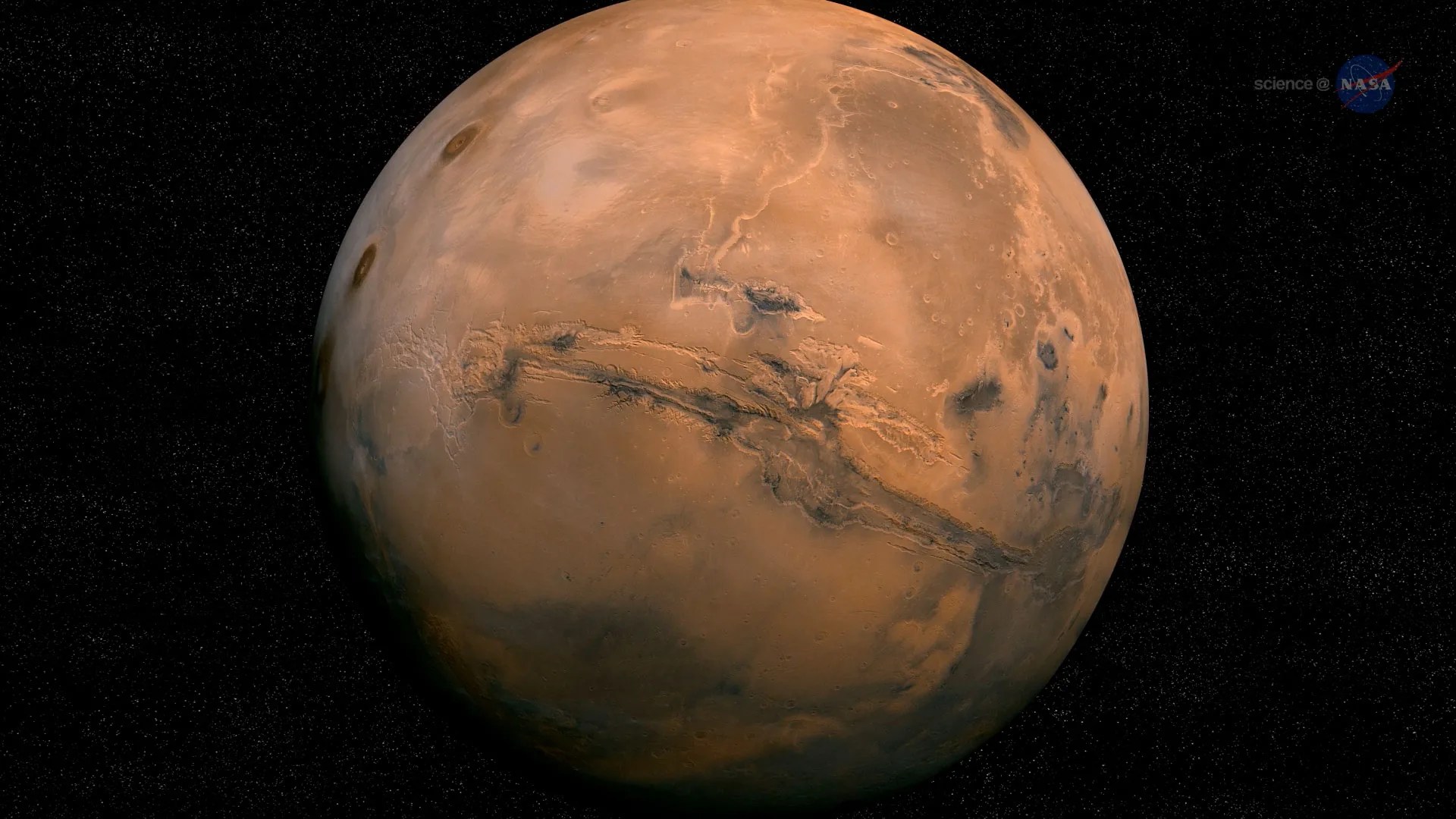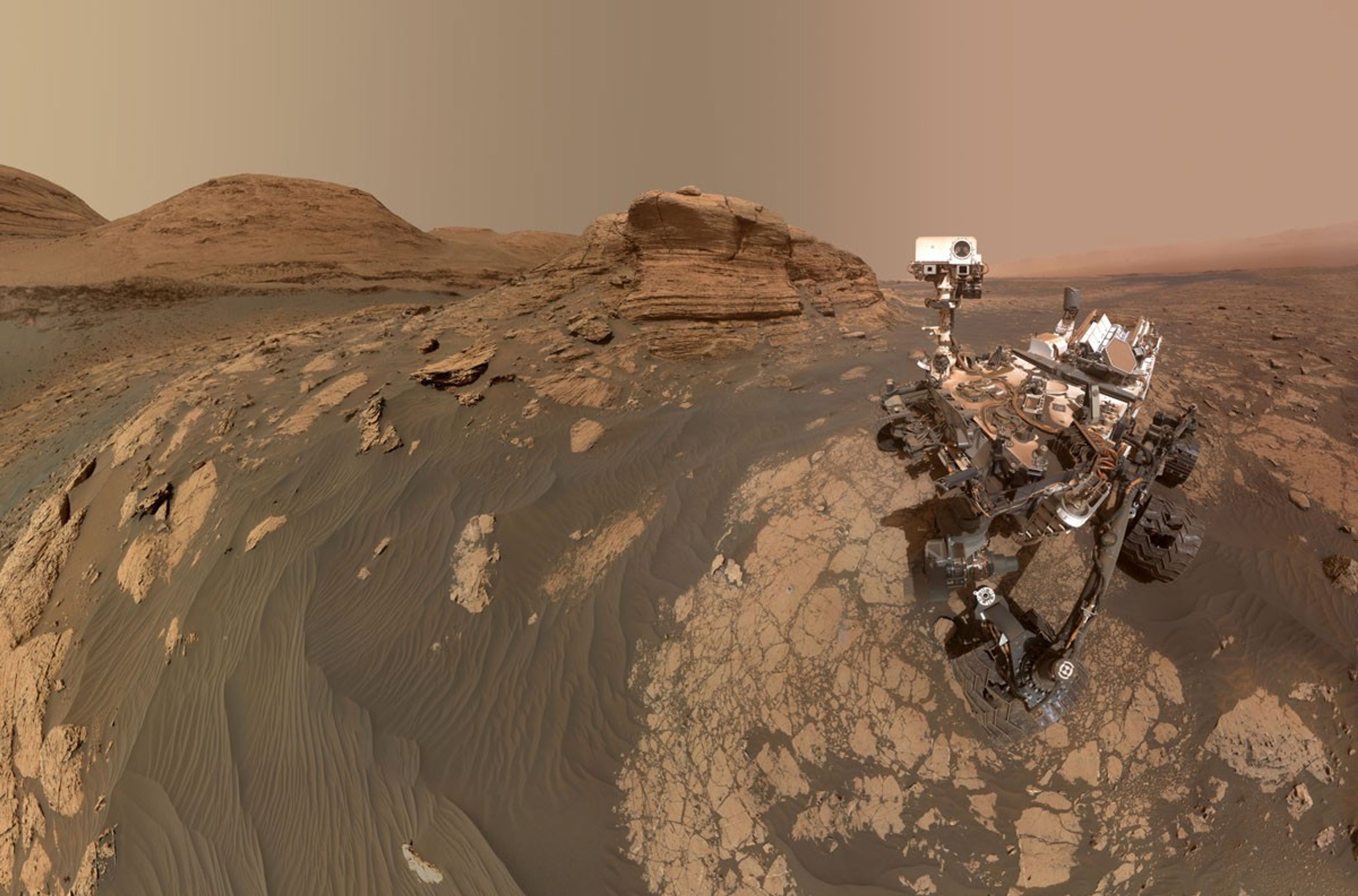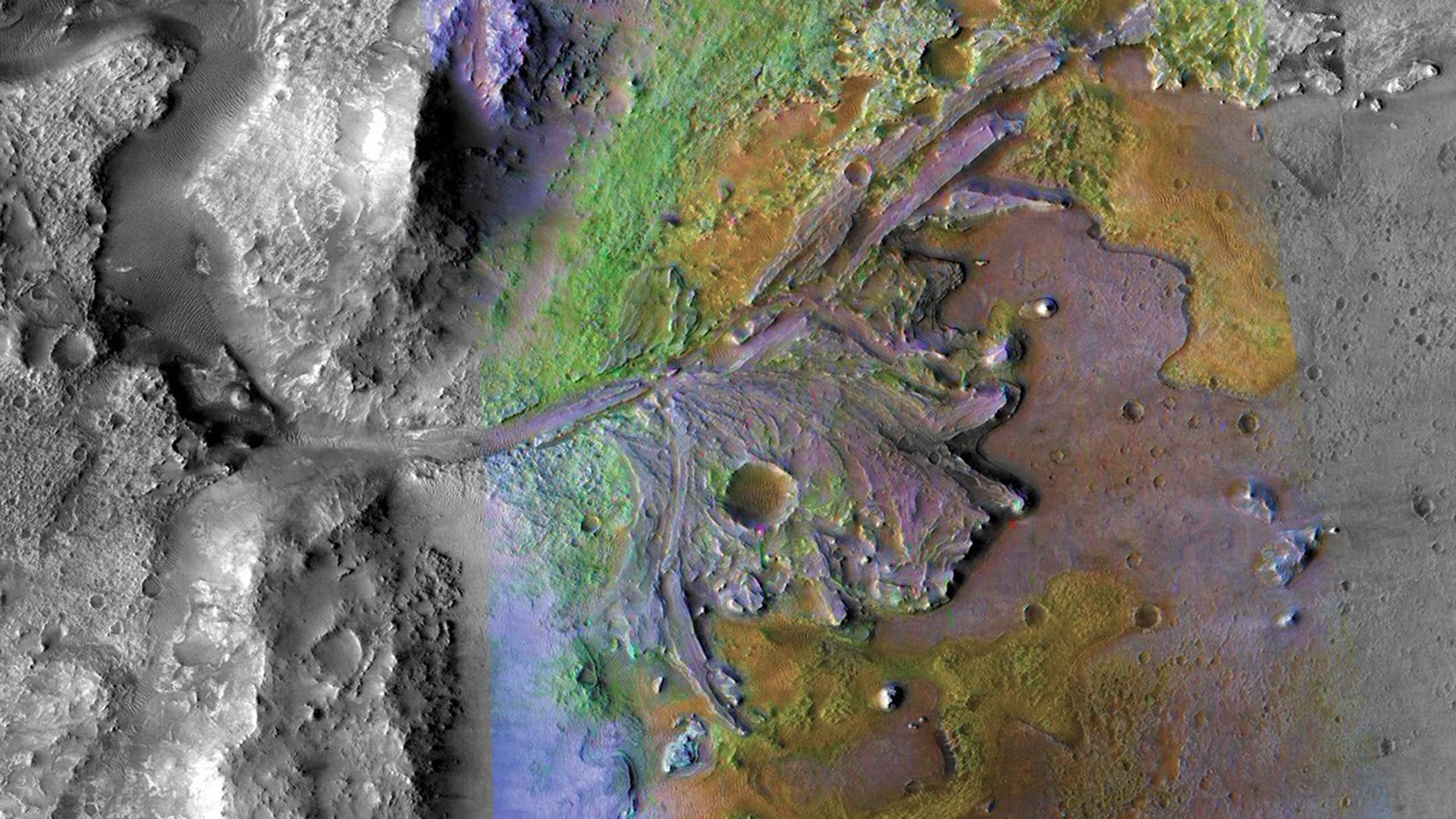3 min read

Last week, team scientists and the internet alike were amazed when Perseverance spotted a black-and-white striped rock unlike any seen on Mars before. Is this a sign of exciting discoveries to come?
It has now nearly been a month since the rover began its climb up the steep slopes leading to the crater rim, on the hunt for ancient rocks that could teach us about early Martian history. While these tricky slopes made for a slow initial ascent, drive progress has improved greatly in recent days, as Perseverance has cruised along a flatter stretch. From this overlook, the rover can now spot landmarks from earlier in the mission like the iconic ‘Kodiak’ butte on the hazy horizon, thick with dust from nearby dust storms.
While driving across unremarkable pebbly terrain, beady-eyed team members spotted a cobble in the distance with hints of an unusual texture in low resolution Navcam images, and gave it the name ‘Freya Castle’. The team planned a multispectral observation using the Mastcam-Z camera in order to get a closer look before driving away. When these data were downlinked a couple days later, after Perseverance had already left the area, it became clear just how unusual it was! ‘Freya Castle’ is around 20 cm across, and has a striking pattern with alternating black and white stripes. The internet immediately lit up with speculation about what this “zebra rock” might be, and we’ve enjoyed reading your theories!
The science team thinks that this rock has a texture unlike any seen in Jezero Crater before, and perhaps all of Mars. Our knowledge of its chemical composition is limited, but early interpretations are that igneous and/or metamorphic processes could have created its stripes. Since Freya Castle is a loose stone that is clearly different from the underlying bedrock, it has likely arrived here from someplace else, perhaps having rolled downhill from a source higher up. This possibility has us excited, and we hope that as we continue to drive uphill, Perseverance will encounter an outcrop of this new rock type so that more detailed measurements can be acquired.
‘Freya Castle’ is merely the latest in a series of intriguing rocks found recently; ever since arriving in the vicinity of the crater rim, the team has noticed an increased variety of rocks, such as the diverse collection of boulders at ‘Mount Washburn’. Could these be our first glimpses at ancient rocks uplifted from depth by the Jezero impact, now exposed on the crater rim? Only time will tell…
Written by Athanasios Klidaras, Ph.D. student at Purdue University







